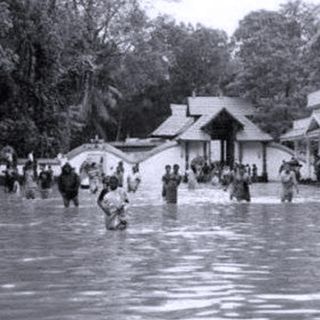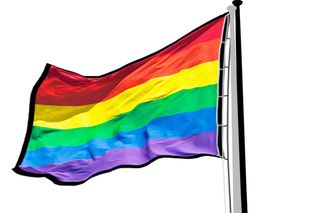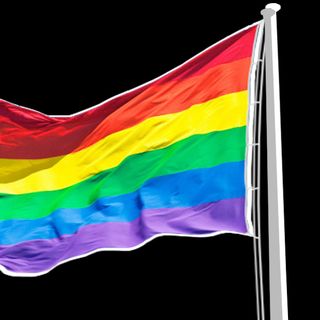
Watching Section 377: The Parent
The second in a three-part series exploring what LGBTQ+ people and their families are feeling as they watch Supreme Court deliberations.

Last month, the Supreme Court began hearing petitions to repeal Section 377 of the Indian Penal Code, which criminalizes “carnal intercourse against the order of nature,” which has traditionally been interpreted to include sexual relations between persons of same sex. The bench, headed by Chief Justice Dipak Misra, has raised hopes; one of its members, Justice DY Chandrachud, linked the rights of LGBTQ+ individuals to the decision that established privacy as a fundamental right in January.
We spoke with several young adults, as well as the parent of one, about what it’s like to grow up gay in India, and how repealing Section 377 would affect their lives. The second installment of this three-part series features the parent of young woman who identifies as bisexual. The interview has been edited for length and clarity.
The Parent
THE SWADDLE: Have you been watching the proceedings as the Supreme Court reviews Section 377?
Nilakshi Roy, 57: I think the Supreme Court interventions at this stage are marvelous. They have not been as open and as supportive of anything in the past. The way they have intervened, the way they have interpreted the right to privacy and the right to personal freedom. My entire frustration and anger and distrust of the judicial system, has completely gone, and I’m totally in praise of this particular bench which is examining Section 377. I must say, hats off to them.
THE SWADDLE: What would repealing 377 mean to you?
Nilakshi: Society is trying to cast aspersions on something which my daughter is not doing with a criminal intent or somebody’s son is not doing with a criminal intent. I don’t want to have that kind of inequitable aspersion cast on anyone. I do not like that on principle; it’s not just question of my daughter, who is not much affected by Section 377 as such; she’s bisexual. She’s not doing any harm to anybody, [not] acting against the scope of nature. [Her orientation] is a very personal matter. Frankly, it’s none of their business.
THE SWADDLE: Did you ever imagine you’d have a child who would not be heterosexual?
Nilakshi: No, no one ever dreams of that. But today I’m very proud of it, because she is a very active social worker [with Humsafar Trust, an LGBTQ+ rights organization].
THE SWADDLE: Has your daughter’s sexuality changed you as a parent?
Nilakshi: It has taught me to be much more accepting, much more positive about my child. Probably, you know, I wouldn’t have engaged with my child as a human being in this particular way, unless she had been a part of the [LGBTQ+] community.
THE SWADDLE: As the parent of a bisexual woman, what do you worry about?
Nilakshi: I don’t worry about anything that [parents of heterosexual kids] don’t. I worry about drugs and alcohol, long working hours, health. I’m not worried about anything else. Honestly, my daughter’s health matters much more to me, my daughter’s career matters much more to me [than her sexuality]. I’m very comfortable with her identity, if she is comfortable with her identity.
THE SWADDLE: Were you always so comfortable? How did you find out about your daughter’s sexual identity?
Nilakshi: We came to know from SMSes [that she was dating a girl]. [At first], I felt for some strange reason that the girl was, like, the force behind all this, and she was the aggressor in the relationship, and she was the one who showed this kind of possibility to my daughter. Because I knew that my daughter was seeing a boy earlier, you see. And in her younger days in school, she had many boy crushes and all, so I thought, “Probably my daughter is not like this. How come this has happened? It must be the work of that girl.” So, I was initially very upset. I just couldn’t understand. I never thought of the possibility of bisexuality. I was not myself so very well-educated on bisexuality. Homosexuality, yes, but bisexuality I didn’t even know about at that point.
THE SWADDLE: How did you move from that point to being the supportive parent you are today?
Nilakshi: The best thing that happened to us, is that we were taking counselling anyway, for other reasons, and this thing also happened at that time. I had a very comfortable time of [adjusting] because of my counselor. I asked my counselor [when I had discovered the SMSes], “So, this is the thing, what do we do?” So she said “Don’t do anything, because you can’t do anything. It’s not something you can change. What do you want, basically?” I said, “I just want that she should be happy, and there should be no tension between us.” She said, “That she will tell you only when she wants to, only when she can. If you force her, she will just say that it’s not that, so is that what you want to hear?” I said, “No, I want to hear the truth.” So she said, “She’s not comfortable with the truth herself, perhaps, so you’ll have to give her time.”
It was very difficult for my daughter, too, to accept and even come to terms with it herself. Also, my husband’s sister has a son, daughter-in-law and the daughter, who are all doctors, one of them is a psychiatrist. So they helped a lot. They helped her accepting herself, and they helped us accept the whole situation.
I’m saying it like this, but it was also not as cushy as I’m making it seem. It was tough. It was very tough. Actually it was more tough for my husband, and that’s why it was more tough for me. He just didn’t understand. Today he understands. It was a long journey. At every inch we learned a lot. I was supported and helped by a lot of people around. I want to tell it to other parents reading the article. It’s just the question of reaching out, people have changed a lot. Your relatives, whom you think or imagine are very narrow-minded or rigid, might be some of the people who give you most help when you need it. Your friends, certainly.
THE SWADDLE: You say it was tough for your husband, and that’s why it was tough for you. Did learning of your daughter’s sexuality affect your relationship as a couple? Or the family’s dynamics?
Nilakshi: Initially, you know, a lot of these differences were where my husband would say, “It’s all right, it’s her sexuality. Let her do what she has to, I don’t want have anything to do with it.” You know, “I don’t want to have anything to do with it,” is a homophobia. So, I had to explain to him, in many different ways: Better you come to terms with and accept her, otherwise you are not relating to her. And she wants to be related to. And you’ve got to think like a parent: Unless you support her by walking 10 miles ahead with her, people will pull her 10 steps behind. So, you have to give it your all or nothing.
I don’t know, it must have worked, because suddenly this year he went for Kashish [a queer film festival]. He spoke openly in public [during an event]. That was his first admission that he was a parent of an LGBT person. It was also his coming out. It was very special for us, because he spoke so lovingly, so openly at a parent. I understood the depth of his transformation, and I’m very happy for it.
THE SWADDLE: What message would you give other parents who find out that their child identifies as LGBTQ+?
Nilakshi: Ohhh, read up, read up, read up! Just read up. Read up stories of discrimination, read up the statistics of suicide, before raising an eyebrow towards the child. Read up on the amount of depression they go through just to discover who they are, because its not really common. Everybody does not have this orientation, though is subliminal in every human being.
[LGBTQ+] children are usually in depression because they are themselves not comfortable with their different sexual identity. No one is. Because they are taught from childhood, that this is abhorrent, this is different, this is laughable…. They themselves have a deep sense of self-hatred and not belonging and confusion of identity when they are especially in their early and late teens, when they’re trying to come to terms with their sexuality.
To accept this, because society’s so heavily against it, becomes a very difficult thing for a child, so just love and more love. Unconditional support without thinking of yourself is what I suggest.
Next in this series: The Single Woman.
Related


Watching Section 377: The Partners
